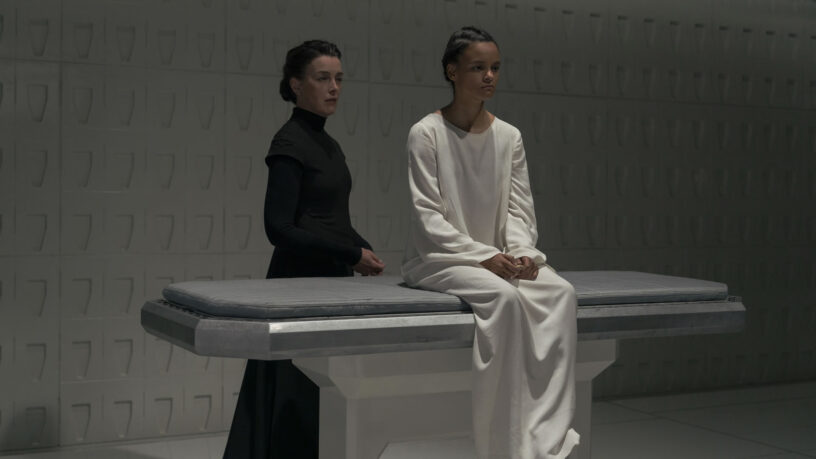The second episode of Dune: Prophecy brings the Sisterhood into fuller view by highlighting their core features, like loyalty and mystical ancestral memory. We see Mother Superior Valya calmly encounter a set-back in the political arena and come face to face with a prophesied existential threat, while other Sisters place themselves on the line for a greater cause. So far I’m liking the direction the show is going in balancing the subtlety of the women’s skills with the need to translate them into a visual medium.
Note: This article contains spoilers for events in Dune Prophecy episode 2.
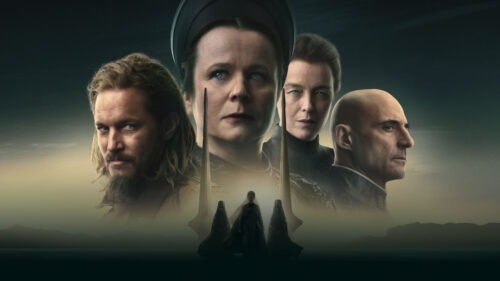
Loyalty
The idea of the collective taking precedence over the individual underpins the Sisterhood. Critics of the book have long used this as a mark against Bene Gesserit characters, even though we see many examples of people putting others’ interests above their own in the real world. This episode almost effortlessly illustrates how a woman could be completely loyal to a cause without coercion. The Suk physician says she’s still a sister first, implying that her bond to the Sisterhood is stronger even than her profession. Later, Lila tells a fellow acolyte who questions the Sisterhood’s motives: “This is my home. My family. I believe in our mission.” She is willing to undergo the agony for the greater good. Her character highlights the idea of self-sacrifice and the bonds between sisters and the order. The nature of choice is complicated, but women make the choice to put the Sisterhood first nonetheless.
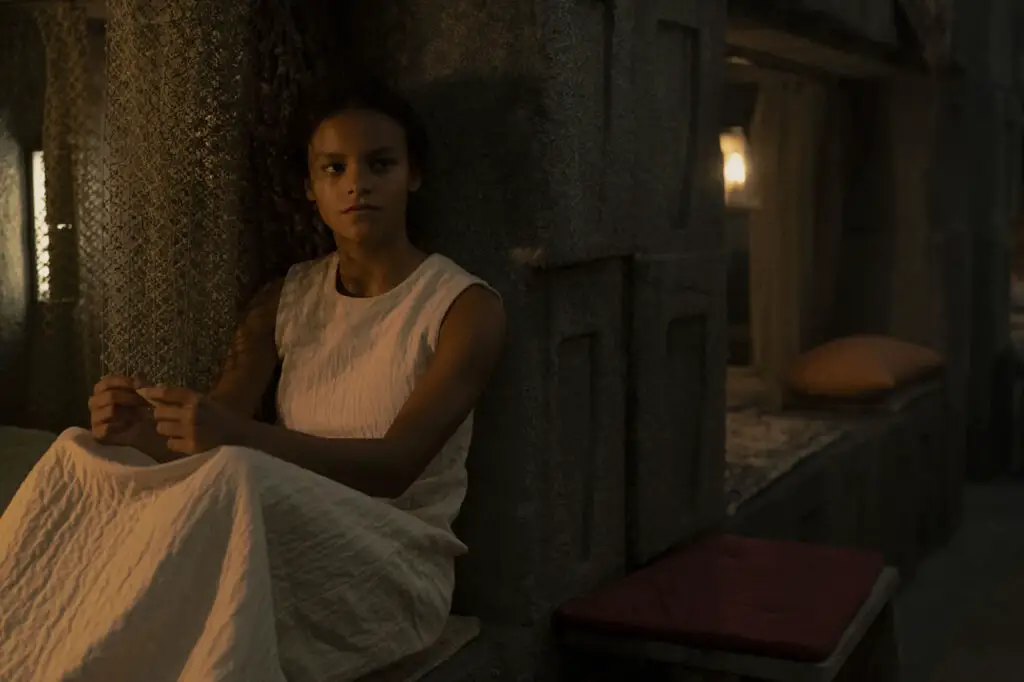
Emotional Control
On two occasions, the episode shows Tula tearing up and betraying one of the cardinal rules of the Sisterhood: letting yourself be controlled by emotion. This should not be, and sure enough, her sister Valya criticizes her and says that “emotions cloud judgment.” The contrast between these sisters helps us quickly see the principles of the Sisterhood. But it also shows that these women are still human and sometimes let their concern show through their tight control.
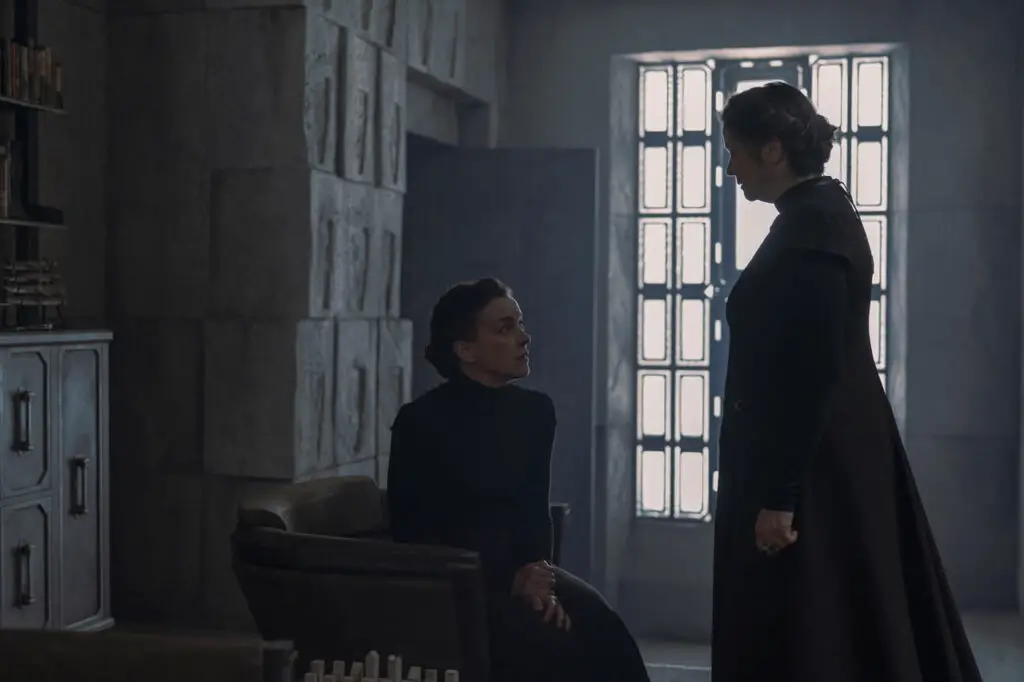
Other Memory
The ambiguous concept of Other Memory is explained with care. Since even Frank Herbert had inconsistencies in his depictions of Other Memory and genetic memory across the book series, the task of showing this mystical phenomenon is not a small one. To its credit, the show handles the different aspects of Other Memory in a way that is straightforward but still keeps its mysterious psychological nature. A casual mention of the term Rossak poison feels like a subtle wink to book readers who will recall this term from Jessica’s experience.
In the show, it is Tula who offers Lila a simple explanation of how the poison, the agony, and other memory work, while acknowledging that the experience is unpredictable and requires willpower. The depiction of Lila’s descent into a shadow world moves the show into the realm of horror, but this is not out of line with the idea that a woman’s identity can be possessed if her ego is not prepared to withstand the onslaught of her ancestors.
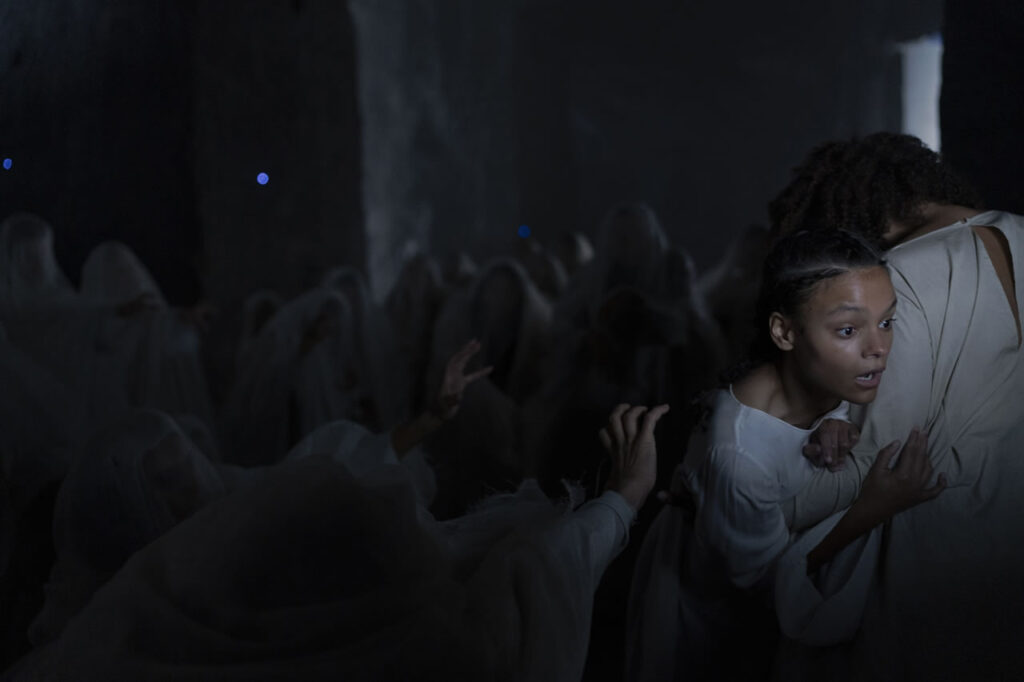
The Voice
Although the Voice has been stripped of a lot of its original linguistic nuance, it does the job of immediately showcasing women’s ability to control others. They don’t go around using it all the time, but reserve it for certain extreme circumstances. So it’s naturally a shock when it doesn’t work! The scene between Desmond Hart and Valya cunningly faces off male and female strength, and Valya maintains her cool even in the face of a clear threat. How many women would love to be able to imitate her in boldly stating “You mistake me for someone who’s afraid.”
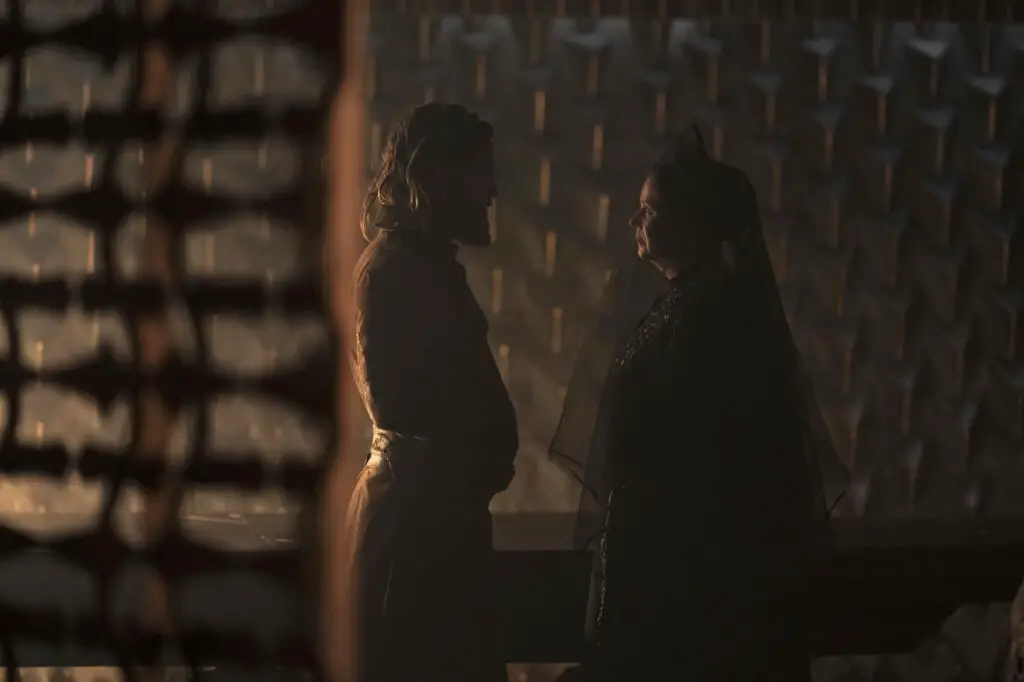
Power and Risk
The themes of power and risk emerge more clearly in this episode and will likely carry through across the series. Perhaps to convince viewers that women can have quite a lot of influence regardless of their role, the show provides not only visual examples but also language to this effect. Valya reminds Mikaela of the different facets of political control with her line “the shadows hold power too.” The Princess appears more despairing when she says everyone is just a piece on a board to be played in pursuit of power. Valya and Tula worry about a new enemy to undermine their power and go to great lengths to uncover its nature.
The idea of risk is also explicitly voiced several times. The Sisterhood is concerned with their secrets getting out, the threat posed by thinking machines, and the potentially fatal consequences of undergoing the Agony.
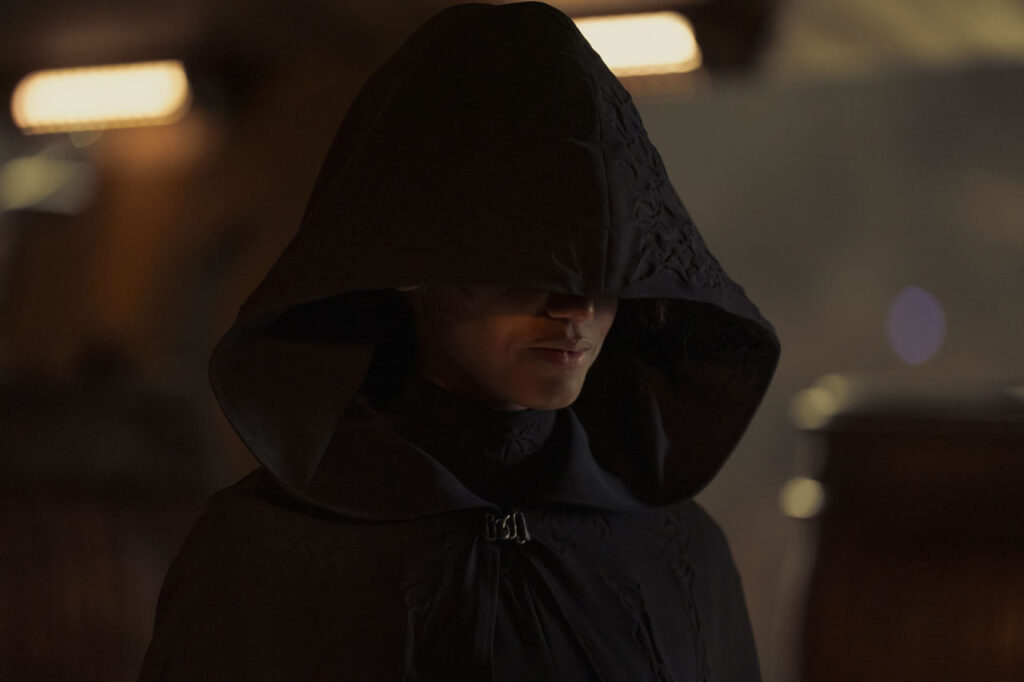
Noblewomen
Other women outside the Sisterhood also prove their political savviness. The emperor’s spouse advises him and shows a willingness to play dirty when it comes to politics. She’s also the one to advocate for Valya to question the prisoner and then turn against her when Valya has served her purpose. Meanwhile, the daughter of Duke Richese shows her willingness to use pillow talk as a way of gaining information from the prince to then pass on to her father in his negotiations with the emperor. Women can and do exert influence whether they are Bene Gesserit or not.
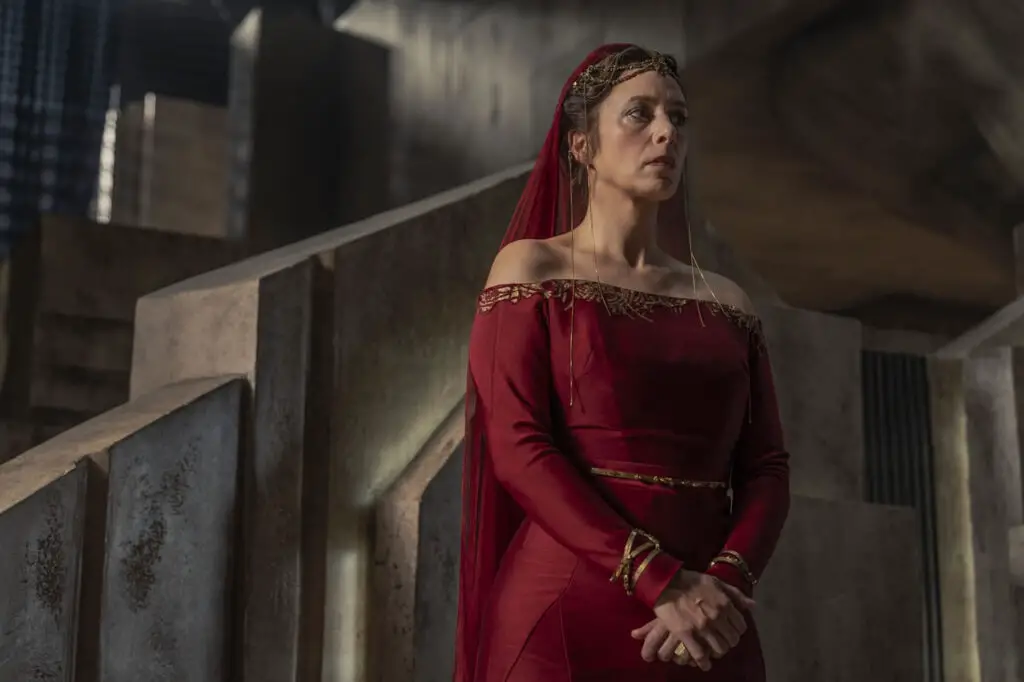
The Threat
The soldier, Desmond Hart, is developing into a serious obstacle for the Sisterhood. Not only is he immune to the command of the Voice, he seems to possess a magical ability to burn people alive without even touching them. He also has it on his agenda to wipe the Sisters out as players in the game of politics. These women have spent lifetimes carefully honing their physical and mental abilities and maneuvering to secure places among the nobility. To be left unheard and of no consequence to others would indeed be a fearful prospect.
One of the challenges of the show is there’s still not a perspective character that we can clearly identify with and follow. It’s harder to be rooting for or against any one particular person among the rebellious plots, spying, and other such elements. But these are merely the canvas against which the Sisterhood is operating, and I’m interested in seeing the Sisters’ attempts to respond to the emerging threats in this environment.
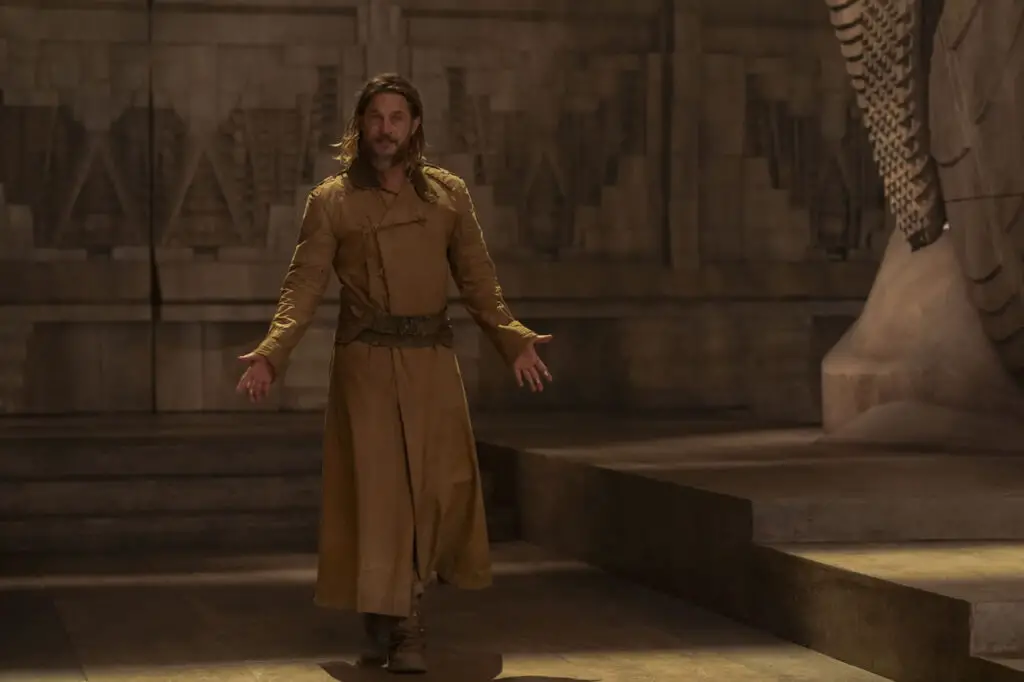
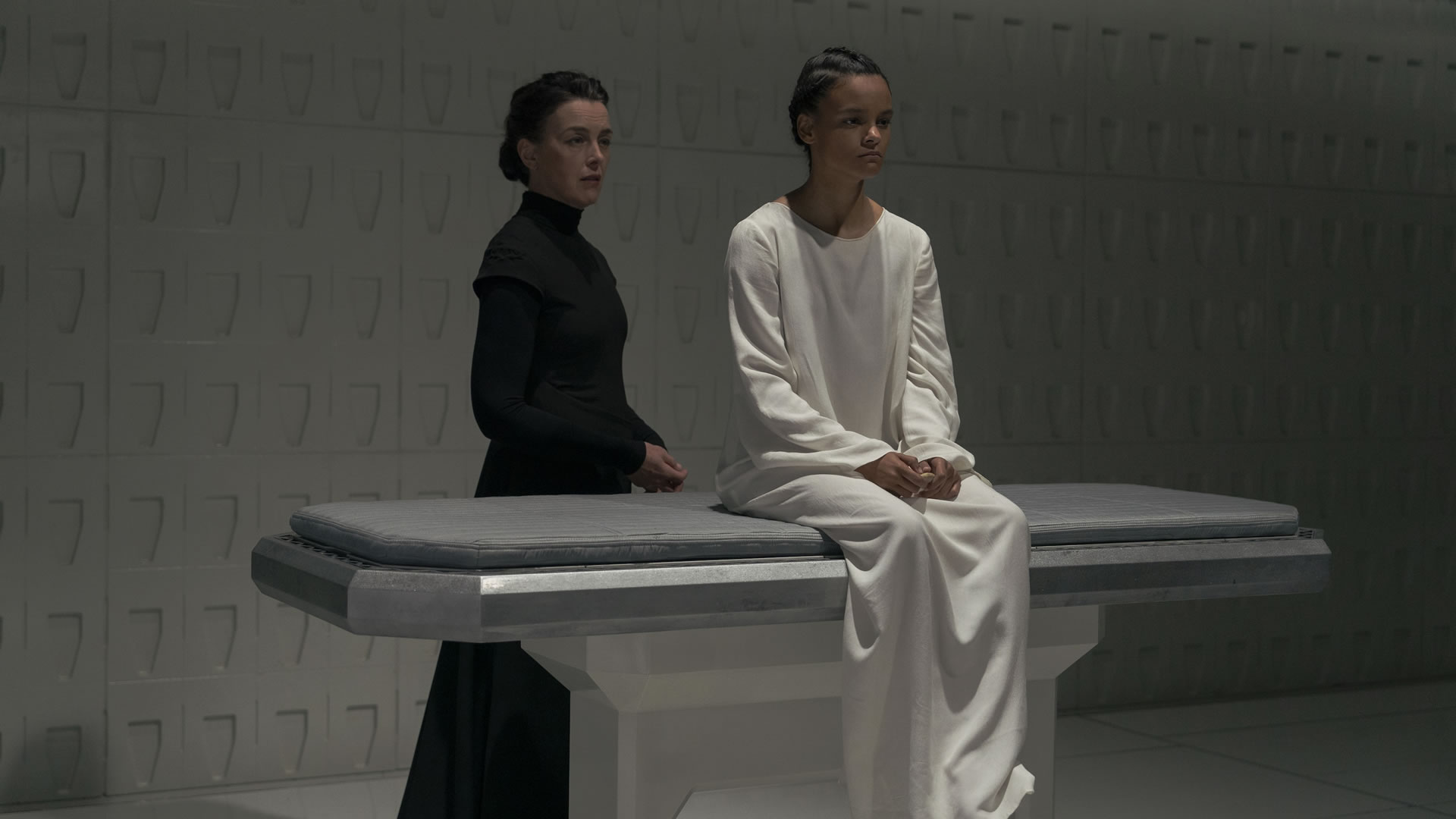
Thanks to Warner Bros. Discovery for providing Dune News Net team members with review screeners for this episode of Dune: Prophecy.


